Dear Friends,
With the climate COP30 in Brazil just around the corner, the urgency to aggressively reduce greenhouse gas emissions has never been greater.
One often overlooked solution that can have a major impact is keeping recyclables — including food waste and other organics — out of landfills, where they release methane, a greenhouse gas 86x more potent than CO2 in the short term.
In Brazil, Argentina and Indonesia, Delterra has been supporting initiatives that help households, municipalities and waste workers transform organic waste into compost and other low-emission resources. It’s a low-tech, low-cost, high-impact solution that we will be advocating for during COP30 with a new report and insights for cities. Over the coming weeks, we are excited to be sharing the results of this work, which has been generously co-funded by the Climate and Clean Air Coalition and Global Methane Hub.
Within our other programs, in Indonesia we have seen how bold action in behavior change can drive rapid results. In just two weeks, a pilot project in Kekeran Village, Bali, applying the “No Sorting, No Collection” rule, increased household waste separation from 6% to 78%.
Building on lessons like these, we’re now working to unlock similar momentum in Brazil – where, despite enormous potential, only 5% of household waste is recycled or composted. Delterra is bringing together governments, companies, waste pickers and communities to build a circular economy model that could position Brazil as a leader in waste transformation in the Global South. Below, we highlight the projects we are working on in the country.
These examples remind us that progress happens when we move beyond incremental change and toward inclusive, transformative and sustainable systems.
Warm regards,
Shannon Bouton
President & CEO, Delterra
Turning Organic Waste Into Climate Action
Across Argentina and Brazil, Delterra is proving that organics recovery and treatment can be a major driver of GHG reductions. With co-funding by the Climate and Clean Air Coalition (CCAC), we’ve helped multiple cities achieve tangible results: greater volumes of organic waste from both residential and commercial sources have been diverted from landfills, collection costs per ton have been reduced, composting quality has been improved and municipalities have gained stronger capacity to run programs independently.
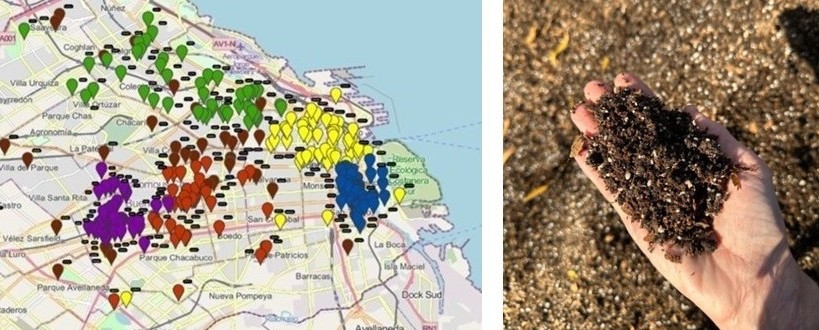
| >> To learn how we have tested and continue to scale solutions in Latin Ameriica starting with Argentina and Brazil, click here. |
Indonesia
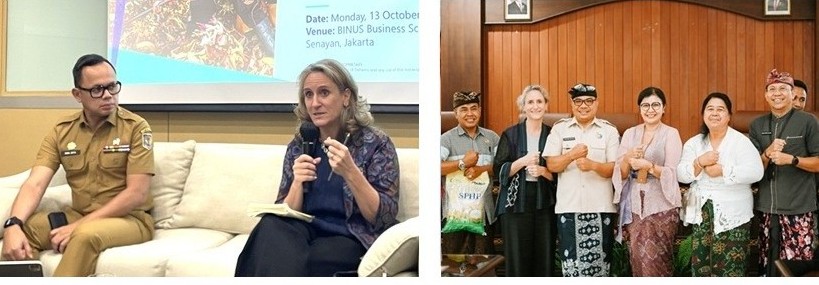
This quarter, our CEO, Shannon Bouton, had the opportunity to speak at Binus University alongside Bima Arya, Indonesia’s Deputy Minister of Home Affairs.
She also visited Jakarta’s Waste Crisis Center, which plays a key role in generating data-driven insights to support decision-making within government ministries. During her trip, Shannon and members of the Delterra Indonesia team met with Waste4Change and ecoBali — partners with whom we’re excited to collaborate to advance major improvements in waste management across Bali.
They also connected with several organizations eager to work together toward meaningful, lasting action to make Indonesia’s waste system more circular. These meetings have left us feeling inspired and optimistic that real, systemic change is within reach.
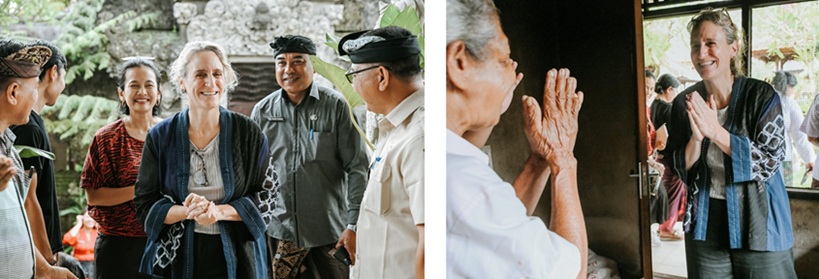
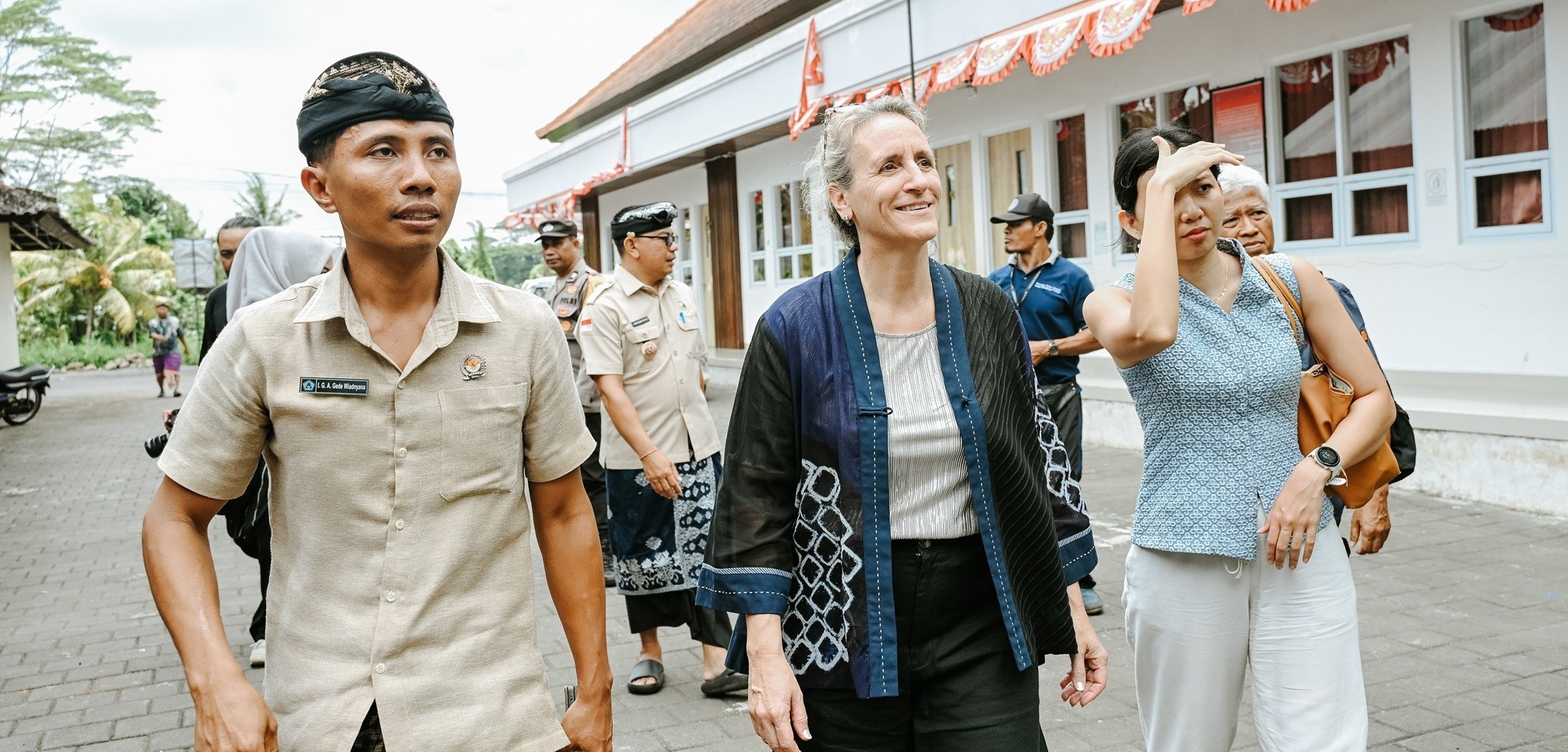
How Kekeran Village Revolutionized Waste Sorting
Why Enforcement Was the Missing Piece. Sorting waste at the source is one of the most critical steps to ensure that dry recyclables and organic materials don’t end up in landfills or pollute the environment. Effective enforcement of separation is essential.
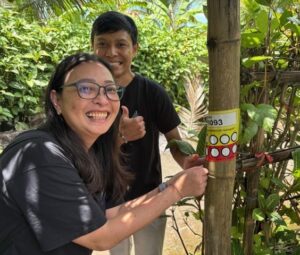 Delterra recently undertook an innovative proof-of-concept project that enforced a “No Sorting, No Collection” rule. In just two weeks, household participation in waste sorting surged from just 6% to 78%. The success of Kekeran Village, Bali, was built on a foundation of existing provincial and regency regulations that mandate waste separation at households and businesses. This pilot was successful in closing the enforcement gap by pairing clear rules with reliable execution.
Delterra recently undertook an innovative proof-of-concept project that enforced a “No Sorting, No Collection” rule. In just two weeks, household participation in waste sorting surged from just 6% to 78%. The success of Kekeran Village, Bali, was built on a foundation of existing provincial and regency regulations that mandate waste separation at households and businesses. This pilot was successful in closing the enforcement gap by pairing clear rules with reliable execution.
>> Read the full story.
Brazil: Waste Management Challenges
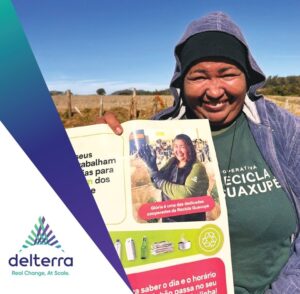 Brazil´s vast ecosystems are facing increasing pressure due to pollution, rapid urbanization and expanding economic activities. The Brazilian government’s National Solid Waste Plan (Planares) aims to increase waste recovery to 48.1% by 2040, but landfills and dumps remain the primary destination for waste, making the transition to a circular economy challenging.
Brazil´s vast ecosystems are facing increasing pressure due to pollution, rapid urbanization and expanding economic activities. The Brazilian government’s National Solid Waste Plan (Planares) aims to increase waste recovery to 48.1% by 2040, but landfills and dumps remain the primary destination for waste, making the transition to a circular economy challenging.
Delterra’s vision for Brazil is to unlock large-scale recycling and composting through collaboration across the entire value chain. This will build inclusive and economically self-sustaining systems in each of the country’s regions.
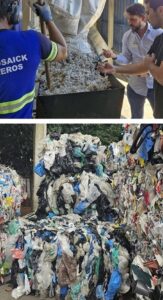 Feature Brazil Project: Unlocking Flexible Plastic Recycling in São Paulo.
Feature Brazil Project: Unlocking Flexible Plastic Recycling in São Paulo.
Low-value plastics make up more than a third of Brazil’s plastic waste but are recycled at a significantly lower rate than other materials. In 2025, we launched a project in collaboration with Mars, Coopercaps, SP Regula and Grupo Interação to significantly increase the recycling of post-consumer flexible plastics at São Paulo’s Mechanized Sorting Centers.
Through a waste characterization study and the tests of quality of the PCR (post-consumption recycled resin) got from the recycling process of the samplestests, we identified the investments needed to develop high quality PCR from flexible plastics in São Paulo.
➡️ To expand its capacity in 2026, the project has been submitted under the Recycling Incentive Law. We are seeking funding to continue and grow our initiatives, including through the Brazilian Tax Incentive Program (LIR). If you’re interested in learning how your company can be part of this transformative project, get in touch with us!
Subscribe & Share
Be sure to subscribe to our newsletter and share with a friend to get real world insights and practical actions for a circular economy!
